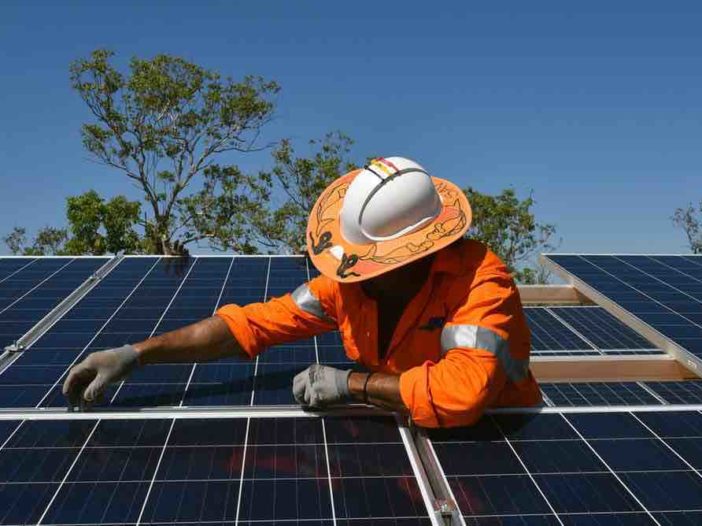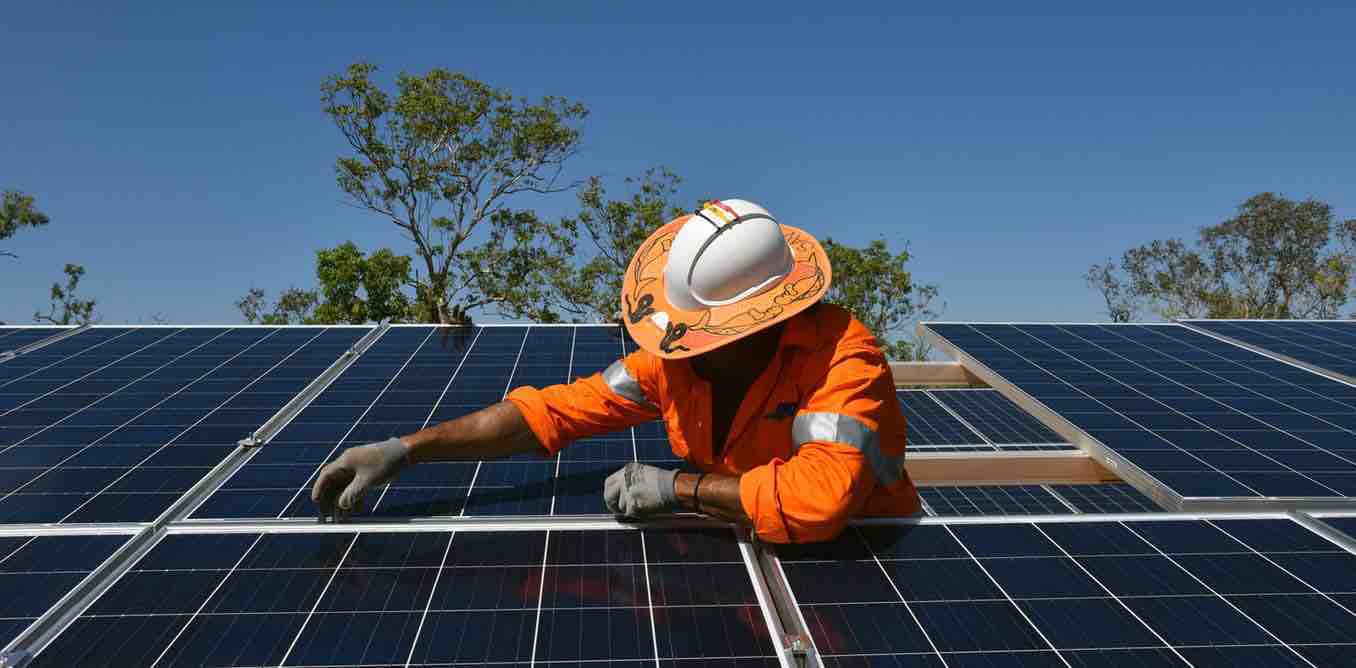
The Clean Energy Council has made a last-ditch plea to the Queensland government to delay and reconsider a rule change that threatens to blow out costs and delivery times for big solar projects in the Sunshine State, and cripple its booming commercial PV sector.
The rule change, which would prevent anyone but licensed electricians to mount, locate, fix or remove solar panels on projects of 100kW and above, is due to become law on May 13 – just over a month after the Palaszczuk government officially confirmed it would be enacted.
At the time, the minister for industrial relations Grace Grace said the move addressed a number of “key concerns” surrounding unlicensed workers – such as backpackers – mounting and removing solar panels at solar farms.
The department also said that the rule change had been fast-tracked in light of the anticipated and accelerating growth in the sector and the need to ensure “these known safety risks” were addressed.
But the Clean Energy Council has again voiced its opposition to the what it says is an ill-considered and rushed decision, and backed industry calls for its introduction to be delayed “immediately” and for the government to consult properly with solar businesses.
As we have reported on One Step and RE, industry has been blindsided by the new regulation, which for many businesses will mean finding a whole new workforce, and paying electricians to perform basic labour such as carrying panels around.
A number of major commercial solar developers have described requiring qualified electricians to lift and mount solar panels as an “absurd” and “knee-jerk” reaction to the wrongdoings of a handful of companies, that will have dire unintended consequences for others.
“This is like having to call in an electrician to hang a TV on a bracket on your wall. It’s absurd. It would be virtually impossible to electrocute yourself by handling an unconnected panel. You’re at greater risk from handling a toaster,” said the CEC director of energy generation, Anna Freeman in a statement on Thursday.
“The changes will drive up the cost of building both large solar farms and commercial solar systems installed in places like shopping centres, schools, swimming pools and factories.
“Estimates from solar businesses are that the cost of building commercial projects will increase by 10-20 per cent, delaying the payback period for businesses and schools, and making many projects unviable,” Freeman said.
“From 13 May, those businesses which already have projects under construction are going to have to wear this extra cost, without the ability to pass this on to their customers. This means many small- to medium-sized businesses will be out of pocket.
“Not even an electrical apprentice will be able to handle and attach an unconnected solar panel, so the opportunities for apprentices to work in the new solar industry are going to be slashed.”
Freeman noted that the changes would also deliver a hit to the roll-out of large-scale solar farms I the state, which would in turn make it harder for the Queensland government to meet its own 50 per cent renewable energy target.
And the main question remained: Why, when, as many installers have noted, there appears to not be a single shred of evidence of any electrocution injuries that have occurred through the mounting of solar panels?
“To our knowledge, no other jurisdiction on the planet has such extreme and unnecessary regulation in place,” Freeman said.
In a statement delivered in Queensland Parliament on Thursday morning, minister Grace said her department had received 13 safety incident reports in relation to solar farms “involving electrical shock, electrical burns, explosion and the risk of injury from damage to solar panels from grass fires and severe storms.”
And she said the government had consulted with solar farm industry representatives, including the Clean Energy Council and Australian Industry Group.
“Speaker, it is essential that electrical safety comes first – there are no second chances; that electrical work is undertaken by a
licensed worker or electrical apprentice; and the new, updated code of practice and regulations will work to achieve this
outcome,” she said.
Minister Grace also said that under the adjusted code of practice and regulation – which she said had been “welcomed” by trade union groups including the – there remained “many tasks” that could still be performed by workers who were not licensed electricians, such as assembling the PV support structures.
But an industry source told One Step that peak solar industry representative bodies were “by no means involved” in any process of proper consultation.
“The government spent a lot of time with unions and others at roundtables the industry wasn’t invited to. Then we were given an opportunity to put in a last-ditch submission just before Christmas, which was basically just ignored,” the source said.
According to the Department of Industrial Relations, the members of a “steering group of technical and safety experts” established last July to develop a solar farm code and advise on any associated regulatory changes were as follows: the Electrical Safety Commissioner, Powerlink, National Electrical Contractors Association, Master Electricians, Department of Natural Resources, Mines and Energy, Energy Networks Australia, Energy Queensland, the Electrical Trades Union, the Electrical Safety Office, Workplace Health and Safety Queensland and and the Construction, Forestry, Mining, Maritime, Energy Union.

Sophie is editor of One Step Off The Grid and deputy editor of its sister site, Renew Economy. Sophie has been writing about clean energy for more than a decade.

